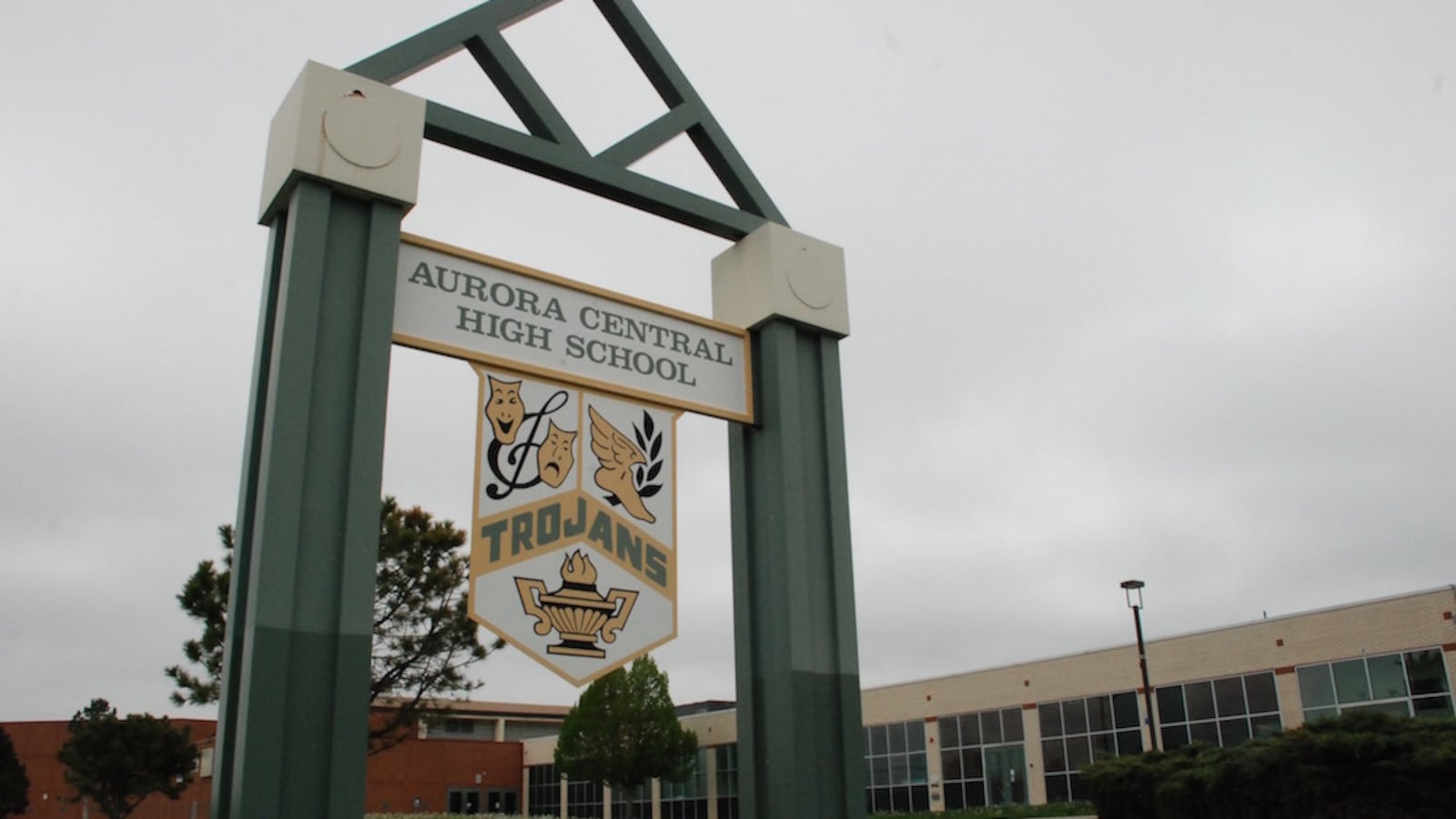Aurora Central High School will continue ongoing reforms but with help from a management company, avoiding more dire consequences for its chronic low performance over more than five years.
During a hearing Wednesday, the State Board of Education unanimously voted to allow staff to finalize a plan that will give the struggling school at least two more years to keep working on reforms rolled out this school year. The board will vote on the blueprint next month.
“There’s nothing magic about this recommendation,” Katy Anthes, Colorado’s education commissioner, told the board Wednesday. “It just takes an incredible amount of work and dedication. We think the staff members here have that dedication.”
The state department’s recommendations mirrored the district’s proposal, an outgrowth of the state’s approach of working with districts and schools facing state intervention to reach agreements before the accountability hearings.
Aurora Central’s last year of data showed declines in student performance. Attendance data presented Wednesday also has been going in the wrong direction. In the 2015-16 school year, daily attendance was 76.5 percent, significantly lower than the state average attendance rate of 93.2 percent.
But state officials told the board they saw the school’s culture improving, giving them hope the plan could lead to improvements. They also cited a rising graduation rate in the last school year.
“We believe a rigorous implementation of this plan can see rapid change in student achievement and growth,” Anthes said.
Aurora Central is the first large high school to face the state for possible sanctions after reaching its limit of years of low performance. The school enrolls about 2,100 students, of which 70 percent are still learning English as a second language.
Since the start of this school year, Aurora Central has been operating under innovation status, which gives it more autonomy from state and district rules.
Under the innovation plan, the school day at Central was extended, and the school was allowed to reject teachers the district wanted placed there and have more control over all staffing.
District and school officials Wednesday answered questions from board members about education for second language learners, serious attendance problems and their work to engage the community.
Rico Munn, superintendent of Aurora Public Schools, told board members that community support of the school had significantly increased in the last year, as seen by donations to the school and community organizations that are working with school staff.
Board member Pam Mazanec questioned Aurora officials about the amount of money from multiple grants they had already been provided for school reforms in the last four years and why they hadn’t produced good results.
School officials said money spent in the past on teacher training was not followed with help to use the new techniques in the classroom. They said the number of instructional coaches at the school this year has significantly increased in an effort to change that.
“I don’t believe the systems and structures were in place,” said Jennifer Pock, assistant principal at Central. “There was not a time for teachers to collaborate. The support is very different this year to carry on the work that began.”
The new wrinkle in the state improvement plan is the addition of a management company, Boston-based Mass Insight. The company’s work will be in partnership with the district, but exact details of what the company would be in charge of are still being determined.
An official from Mass Insight said Wednesday the company intends to question the district and suggest what to focus on or change.
The school district will be required to provide the state updates about progress at least once a year.

